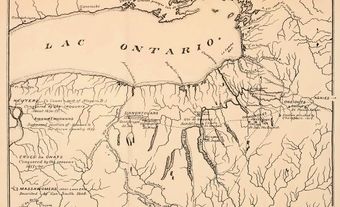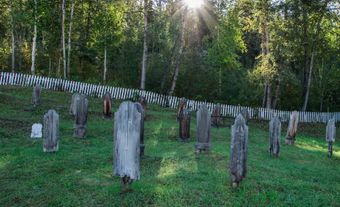Great Awakening
Great Awakening, New England-based movement of religious revivalism and evangelical pietism which came to Nova Scotia in 1775 with Henry ALLINE's decision to preach; it subsequently spread across the Maritimes. The religious currents which produced it were international and at least a century old. Evangelical pietism had begun among LUTHERANS in Germany at the close of the 17th century, spread to England to influence the growth of METHODISM, and contributed to a major religious outpouring in colonial America between 1720 and 1745. From New England, the centre of American revivalism and the source of most early British settlement in Nova Scotia, beliefs and experiences familiar to those acquainted with revival and pietism came to the Maritimes. But the Canadian Awakening was also an indigenous response to peculiarly local conditions. In their scattered wilderness settlements Maritimers teetered on the brink of economic disaster, and with the outbreak of the American Revolution - which the isolated settlers did not really understand - there was a crisis of identity which a movement emphasizing personal salvation could allay, if not resolve.
Alline was soon joined by others. Some, such as John Payzant, were converts through Alline's preachings, but others, such as William BLACK and his Methodist colleagues, apparently arrived at a similar point independently of Alline's "New Light" movement. Alline and his immediate followers accepted infant baptism, but many of those later involved rejected the concept as incompatible with the crisis conversion experience of being "born again." By the 1790s, when the movement had spread beyond NS into NB and PEI and even to the US, the main competition was between Methodists and BAPTISTS. The Great Awakening contributed to religious fragmentation in the Maritimes, and helped establish a regional inclination toward EVANGELICAL churches which remains characteristic. The revival never really ended, but ebbed and flowed throughout much of the 19th century as settlement spread.

 Share on Facebook
Share on Facebook Share on X
Share on X Share by Email
Share by Email Share on Google Classroom
Share on Google Classroom


